Verona's Romantic Aura Now Comes at a Cost
ROME -- Seeking romance, millions of tourists converge upon the gracious North Italian city of Verona. Recalling the star-crossed lovers of Shakespeare's tragedy "Romeo and Juliet," they come to stand where Shakespeare had Romeo stand beneath Juliet's balcony; some lovers are even married in Juliet's supposed home. Increasingly, this romantic aura comes at a price, however. Under the tutelage of Federico Sboarina, Verona Mayor since 2017, tickets are now required for what was once free.
Juliet's house is located at 23 Via Cappello, not far from the famous ancient Roman Arena di Verona, where splendid opera classics are performed in summertime. The house, which dates from the 13th century, belonged to a family called Cappello, who came to be known as Capulets. It is no deterrence to romantic tourism that the world's most famous balcony was actually not part of the original 13th century house, but a 20th century addition, made from a sarcophagus dating from the 17th century.
The romantic tourist hordes continue to descend upon Verona, bringing wealth to the city, but at a price. "Verona is literally submerged by couples convinced they are madly in love," wrote Giampaolo Visetti in La Repubblica daily. One consequence is that this treasure trove for the town and its budget is a "traffic catastrophe," Visetti wrote. Indeed it is: besides the traffic jams and pollution from the flotilla of tourist cars and buses, the influx mean that locals must fight to find a place to park.
And there are other problems. At the rear end of the courtyard of Juliet's house is a much admired copy of a bronze statue of her, sculpted by Nereo Costantini in 1969. But since touching the right breast of the original was supposed to bring good luck in finding one's true love, it was caressed (literally) by thousands of tourists, and has had to be replaced by a copy. To preserve the original, it has had to be placed inside the house.
The newest irritants are what are called "love locks." Verona could hardly avoid sharing in the worldwide fad of showing eternal love by attaching a padlock anywhere possible, on the roadside or especially on bridges. Complaints are that the million or so of these "love locks" in Verona add so much weight that they risk collapsing some walls. The padlocks must be removed, at a price for the city administrators. The chewing gum lovers use to post notes and letters vowing eternal love on walls or wherever they can find an empty place are less harmful, but when they eventually flutter to the ground they must be cleared away and the chewing gum removed from walls it has besmirched. To avoid this the city fathers have applied removable panels to the walls, but tending these too comes at a price.
To fight back, the Verona administration plans to monetize Romeo and Juliet further. The courtyard and House of Juliet will soon offer what is described as a "multimedial emotional tour" complete with audioguide. The five-storey house will be embellished with cafeteria, restrooms, cloakroom and a small meeting room. Already entry into the courtyard, free until 2015, now requires paying a ticket, and entry into that house itself, which at present costs $6.80, will shortly bounce up to $11.38. Student discounts will no longer apply.
Those who want the full romantic effect can be married in that very house. Presently, Verona residents pay $683 per wedding; European Union citizens, $911; and, for those outside the EU, who include U.S. citizens, $1,140. And the truly romantic couple can spend their honeymoon first night in the house, sleeping on Juliet's bed.
Another favorite of tourists is Juliet's tomb, located in an ex-convent of Capuchin friars dating from the 13th century. As for Romeo, the house which tradition maintains was of Romeo's family, the Montecchi, is private and cannot be visited. And at any rate a sophisticated travel writer named Nina, writing online at travelboulevard, points out that there are far more interesting things to do and see in Verona than Juliet's House, "And to be honest, the idea is based on one big fantasy. But I must admit it: it's a great fantasy, and I love it." See >>






























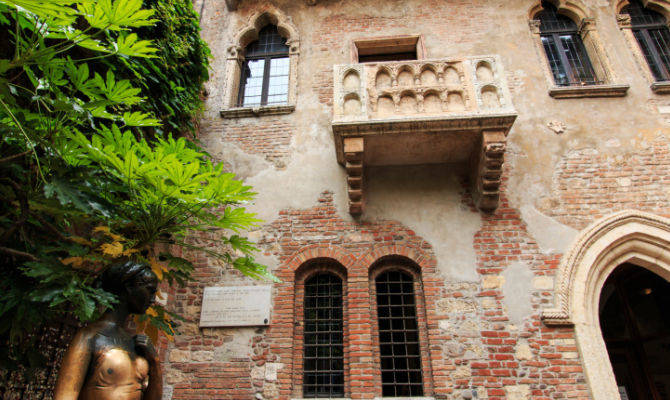
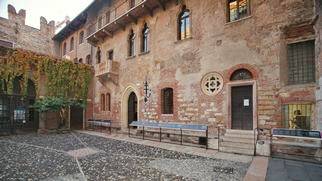
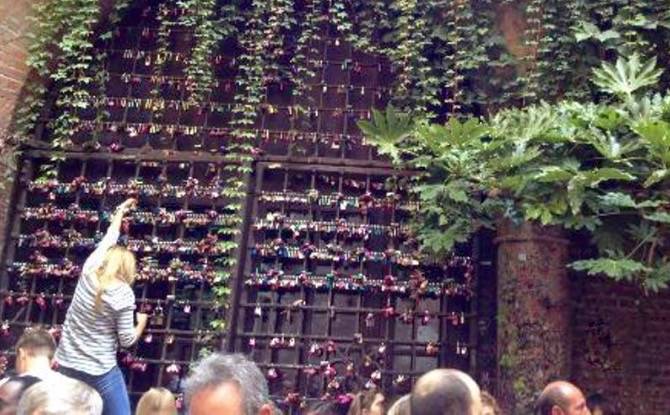
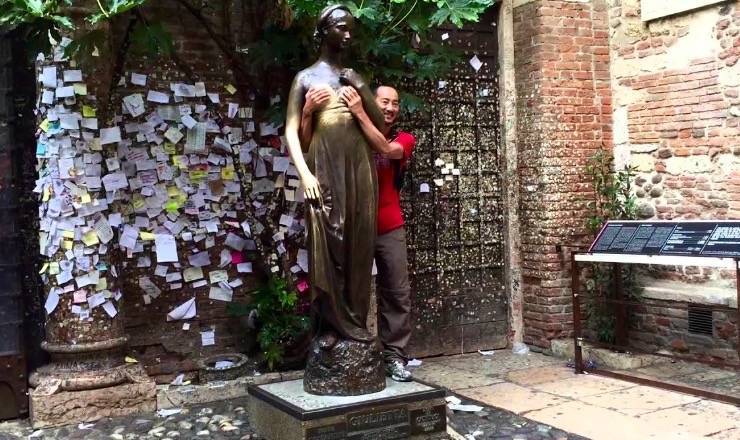
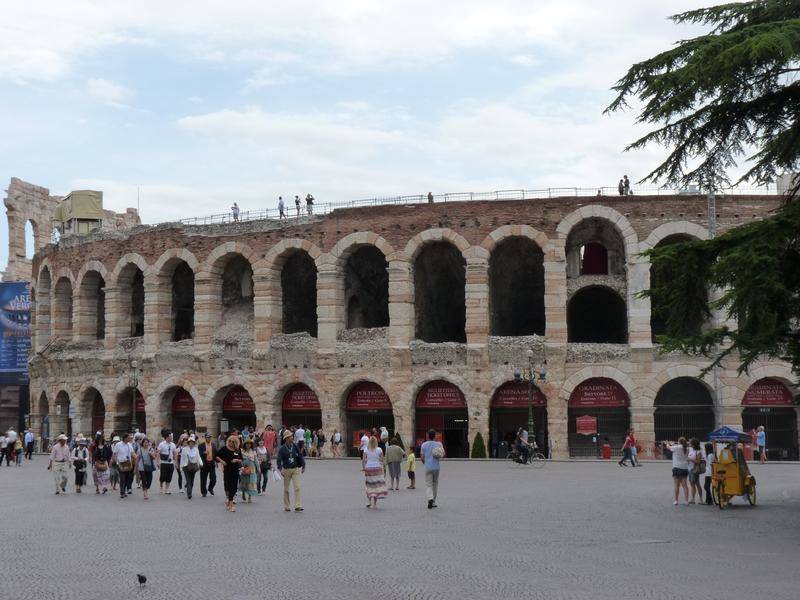






i-Italy
Facebook
Google+
This work may not be reproduced, in whole or in part, without prior written permission.
Questo lavoro non può essere riprodotto, in tutto o in parte, senza permesso scritto.